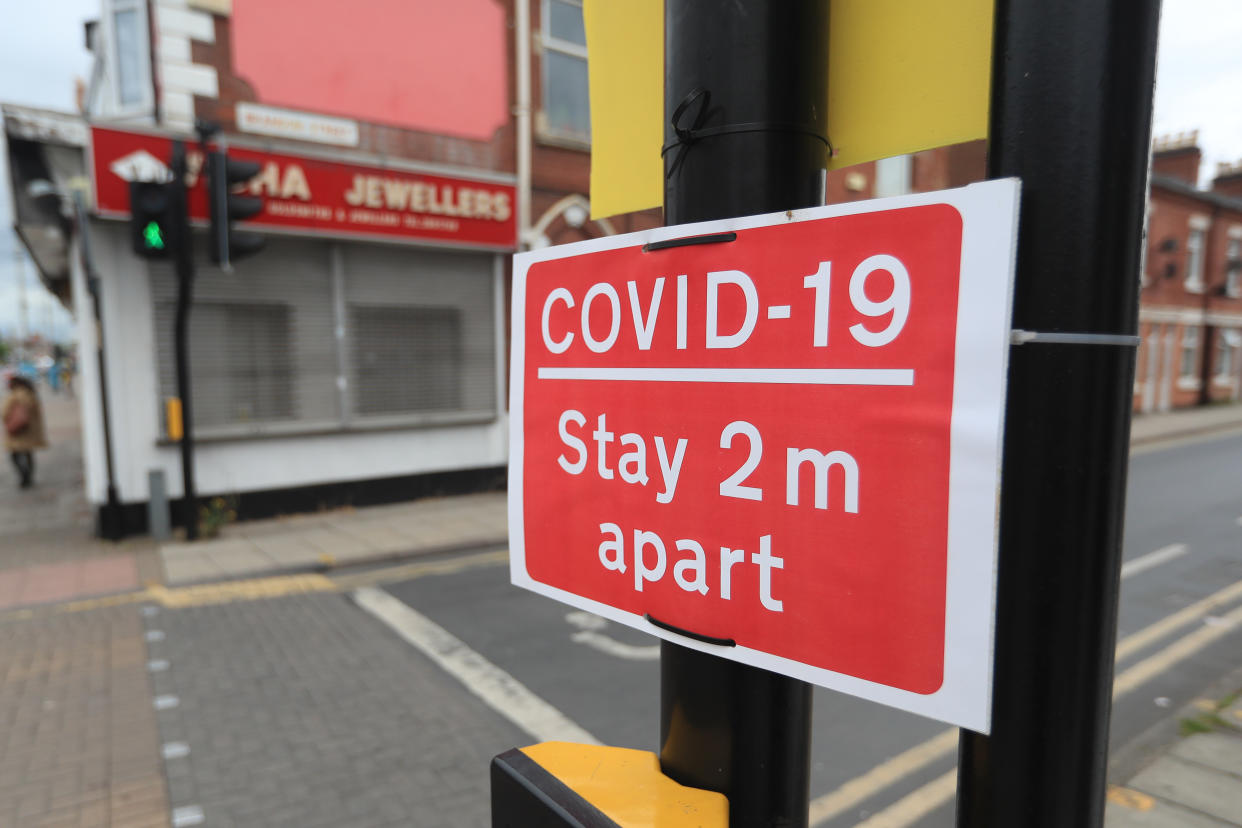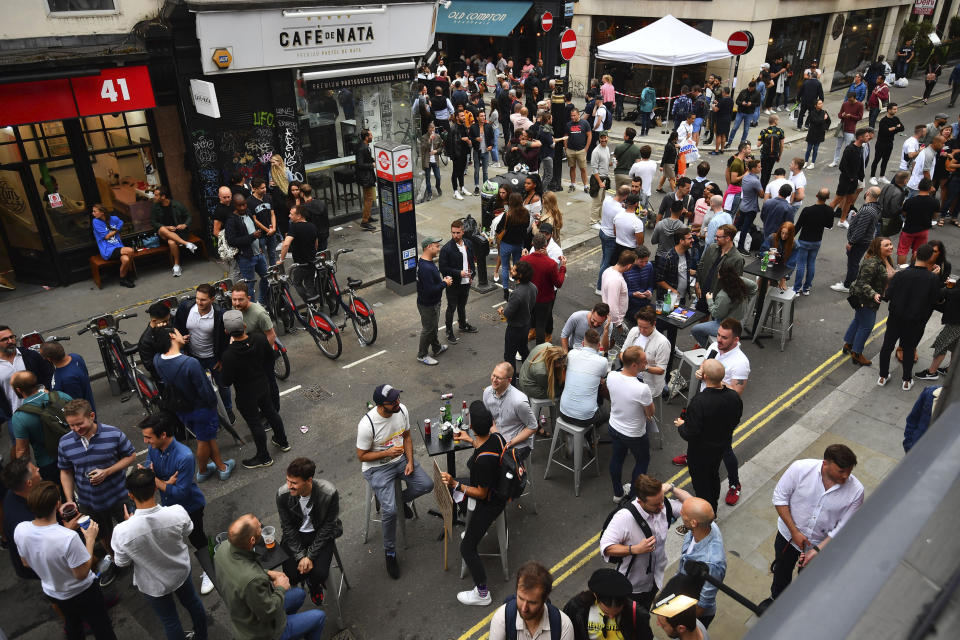Rates of new COVID-19 cases have stopped declining in the UK, study suggests

After weeks of falling numbers COVID-19 rates in the UK are no longer declining, according to a new study.
Figures from the COVID Symptom Study app show there was an average 1,472 daily new cases of the disease over the two weeks leading up to 4 July – an increase on the 1,445 cases from last week.
Data released on Thursday shows there were 85 more coronavirus deaths and 642 new cases confirmed in the UK, with the death toll now standing at 44,602.
It comes as lockdown restrictions in England continue to ease, with pubs and restaurants reopening last weekend.

Boris Johnson has also signalled that indoor gyms are set to open by the middle of July, providing strict social distancing measures are put into place.
Tim Spector, professor of genetic epidemiology at King's College London, said of the figures: “It is disappointing to see that the number of daily new cases is no longer falling as they have been in previous weeks, this could be a temporary blip or due to the easing of lockdown and the amount of social contact slowly increasing.”
The model, which uses data from nearly three million users, suggests that there are 23,459 people across the UK who have coronavirus symptoms.
Figures from the Office for National Statistics (ONS) show that while coronavirus deaths have dropped in the UK, there are still hundreds dying with the illness every week.
The UK government’s chief medical officer Professor Chris Whitty warned last month that the UK will be dealing with coronavirus well into 2021 – meaning thousands more could die over the next few months, based on the COVID Symptom Study.
Prof Whitty said: “For medium to long term, I’m optimistic. But for the short to medium term, until this time next year, certainly I think we should be planning for this, for what I consider to be the long haul into 2021.”
As people in England visited pubs and restaurants over the weekend, there are concerns that there may be an uptick of coronavirus cases as a result.
Prof Whitty said people should continue to adhere to social distancing measures while they go out to socialise.
He added: “A lot of the changes are about emphasising things that we can do and it is really critical that individuals and firms take these really seriously…

“To be really clear, it is absolutely critical that every individual, every household and every firm takes these precautions seriously. If that does not happen, we will go back to a situation where transmission starts to rise again.”
As the government continues to use the NHS Test and Trace programme, recent figures showed that a quarter of patients who tested positive for coronavirus were still yet to be reached.
A total of 1,383 people out of 6,183 with COVID-19 between 18 June and 24 June were not reached – meaning no information was provided about who they came into contact with.
Coronavirus: what happened today
Click here to sign up to the latest news, advice and information with our daily Catch-up newsletter
Read more about COVID-19
How to get a coronavirus test if you have symptoms
How easing of lockdown rules affects you
In pictures: How UK school classrooms could look in new normal
How public transport could look after lockdown
How our public spaces will change in the future
Help and advice
Read the full list of official FAQs here
10 tips from the NHS to help deal with anxiety

 Yahoo News
Yahoo News 


